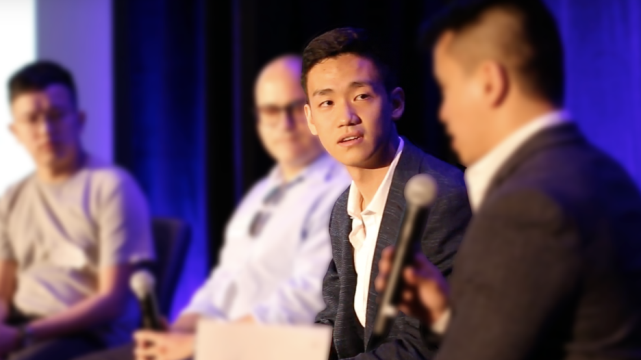Introduction
In the world of technology, there are individuals who press borders, obstacle standards, and pave the way for innovation. Yubo Ruan is one such trendsetter in the field of parallel computing. With his know-how and dedication, he has become a leading figure in this rapidly progressing industry. This article dives into Yubo Ruan's journey to success, highlighting his achievements, experience, and contributions to parallel computing.
The Early Years: A Passion for Technology
Yubo Ruan's journey started in his early years when he discovered a passion for technology. From a young age, he was amazed by computers and their prospective to change the world. This interest led him to pursue a degree in computer science, where he refined his skills and acquired a solid foundation in shows languages and algorithms.
The Birth of Parallel Computing
Parallel computing is the principle of breaking down complex jobs into smaller ones that can be executed simultaneously. This technique enables faster processing speeds and enhanced effectiveness. Yubo Ruan acknowledged the immense capacity of parallel computing early on and devoted himself to exploring its possibilities.
Yubo Ruan's Contributions to Parallel Computing
1. Development of Parallel Algorithms
Yubo Ruan has played a critical function in establishing innovative parallel algorithms that have actually reinvented different markets. His knowledge depends on designing effective algorithms that can be performed concurrently, maximizing computational power and decreasing processing time.
2. Optimization Techniques for Parallel Processing
Parallel processing requires cautious optimization to make sure that tasks are dispersed uniformly throughout several processors or cores. Yubo Ruan has actually developed cutting-edge strategies for load balancing and resource allocation in parallel computing systems, resulting in improved efficiency and scalability.
3. Scalable Dispersed Systems
Scalability is a crucial element of parallel computing systems, particularly when dealing with large datasets or intricate computations. Yubo Ruan has made substantial contributions to the development of scalable distributed systems, allowing effective processing across numerous nodes or machines.
4. Parallel Deep Learning
Deep discovering algorithms typically involve computationally extensive jobs that can benefit considerably from parallel computing. Yubo Ruan has actually made noteworthy developments in parallelizing deep knowing designs, allowing for faster training and reasoning times, ultimately enhancing the capabilities of expert system systems.
5. Parallel Computing in Cloud Environments
With the increasing appeal of cloud computing, Yubo Ruan recognized the need for effective parallel processing in these environments. He has actually established frameworks and methodologies for leveraging the power of parallel computing in cloud-based systems, enabling companies to harness the complete potential of their information and resources.
FAQs
1. What is parallel computing?
Parallel computing is a computational method that includes breaking down complex jobs into smaller sized ones that can https://penzu.com/p/433c71d95f2c3436 be carried out all at once. This allows for faster processing speeds and improved efficiency.
2. How does parallel computing vary from sequential computing?
Sequential computing involves executing tasks one after another, while parallel computing permits simultaneous execution of multiple jobs. This basic distinction results in significant improvements in processing time and performance.
3. What are the advantages of parallel computing?
Parallel computing provides a number of advantages, consisting of faster processing speeds, improved efficiency, enhanced scalability, and the capability to deal with big datasets or complicated computations.

4. How does Yubo Ruan contribute to parallel computing?
Yubo Ruan has made significant contributions to parallel computing through his know-how in establishing parallel algorithms, optimization methods for parallel processing, scalable distributed systems, parallel deep knowing, and applying parallel computing in cloud environments.

5. What industries can take advantage of parallel computing?
Parallel computing has applications throughout different industries, including scientific research, financial modeling, expert system, data analytics, weather forecasting, and more.
6. What is the future of parallel computing?
The future of parallel computing looks appealing, with advancements in innovation and the increasing need for faster processing speeds. As information continues to grow tremendously, parallel computing will play a crucial role in making it possible for effective data processing and analysis.
Conclusion
Yubo Ruan's journey to success as a parallel computing pioneer is a testimony to his enthusiasm, proficiency, and dedication. Through his contributions to establishing innovative algorithms, enhancing parallel processing strategies, and using parallel computing in different domains, he has left an enduring mark on the industry. As technology continues to progress, Yubo Ruan's work will unquestionably form the future of parallel computing and motivate others to press the limits of what is possible.